 |
Friday, 22 May 2015
It's the color of light that matters for sleep
Mood:
 cheeky
Topic: Sleep cheeky
Topic: Sleep
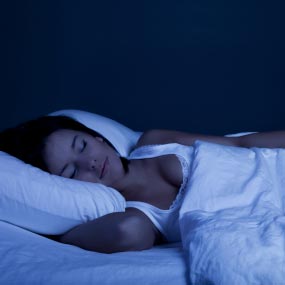
By Jenn Savedge Health experts have known for some time that exposure to light helps to regulate the body's internal clock. That's why humans get sleepy when it's dark outside and start to wake when it's light out. But new research has found that it may be more than light affecting our circadian rhythms; it may be the color of that light that really makes a difference.
For the study, researchers from the University of California, Santa Cruz took a look at how mice were affected by the color of the light they were exposed to. Specially, researchers wanted to know if the color of light affected the suprachiasmatic nucleus — the part of the brain that helps vertebrates regulate time using electrical and chemical signals.
To test this, researchers exposed mice to various colors and intensities of light while measuring nerve signals in the suprachiasmatic. Using an artificial sky, the mice were tested at various intensities of light, from bright light to complete darkness. And they were also tested when they were exposed to colors of light, such as the pinks and oranges that one might see during sunrise and sunset.
Researchers found that when the mice were exposed to light, as well as the various colors of light, they behaved perfectly normally. But when they were exposed to light that went from bright to dark without the color cues, their suprachiasmatic nerve signals lagged behind by about 30 minutes. Other physiological changes — such as a drop in body temperature — that might indicate the mice were ready to sleep also lagged behind by 30 minutes without exposure to colors. Read more: http://www.mnn.com/health/fitness-well-being/blogs/its-the-color-of-light-that-matters-for-sleep#ixzz3YQW8xAQB
Posted by Neil Bartlett DHyp M.A.E.P.H
at 00:01 MEST
Updated: Friday, 22 May 2015 16:01 MEST
Sunday, 15 June 2014
Sleep's Memory Role Discovered
Mood:
 cool
Topic: Sleep cool
Topic: Sleep
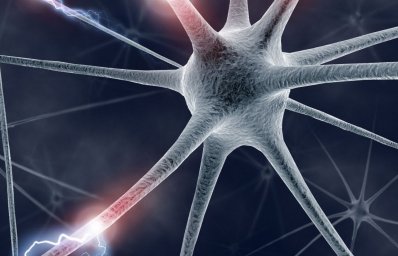
The mechanism by which a good night's sleep improves learning and memory has been discovered by scientists. The team in China and the US used advanced microscopy to witness new connections between brain cells - synapses - forming during sleep. Their study, published in the journal Science, showed even intense training could not make up for lost sleep. Experts said it was an elegant and significant study, which uncovered the mechanisms of memory. It is well known that sleep plays an important role in memory and learning. But what actually happens inside the brain has been a source of considerable debate. Researchers at New York University School of Medicine and Peking University Shenzhen Graduate School trained mice in a new skill - walking on top of a rotating rod. They then looked inside the living brain with a microscope to see what happened when the animals were either sleeping or sleep deprived. Their study showed that sleeping mice formed significantly more new connections between neurons - they were learning more. And by disrupting specific phases of sleep, the research group showed deep or slow-wave sleep was necessary for memory formation. During this stage, the brain was "replaying" the activity from earlier in the day. Prof Wen-Biao Gan, from New York University, told the BBC: "Finding out sleep promotes new connections between neurons is new, nobody knew this before. "We thought sleep helped, but it could have been other causes, and we show it really helps to make connections and that in sleep the brain is not quiet, it is replaying what happened during the day and it seems quite important for making the connections." Read More - BBC
Posted by Neil Bartlett DHyp M.A.E.P.H
at 00:01 MEST
Updated: Sunday, 15 June 2014 01:31 MEST
Monday, 9 June 2014
The plague of light in our bedrooms
Mood:
 d'oh
Topic: Sleep d'oh
Topic: Sleep
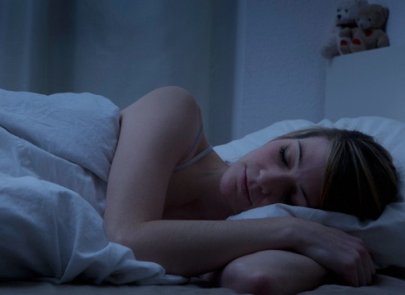
Researchers warn of the health dangers of too much light while we try to sleep. But how did our bedrooms become so bright? There are regular warnings that people aren't sleeping properly. Too much light from electronic devices before bedtime. Not enough time in bed. Excessive caffeine. Now there's another potential worry - too much light in the bedroom. Previous studies have linked light at night with ill health in rodents. Now a study of 113,000 women suggests that it could cause obesity in humans. The work by Oxford University researchers for the Institute of Cancer Research found that women had larger waistlines if their bedroom was "light enough to see across", the researchers found. Prof Derk-Jan Dijk, of the Surrey Sleep Centre, said people "should assess their bedroom and see how easy it would be to make it darker". But have our bedrooms got lighter? There has probably been a trend towards lighter rooms over the past century, says Alex Goddard, curator at London's Geffrye Museum, which is devoted to the history of the home. The first problem is more light outside houses. Houses in built-up areas are surrounded by streetlights, car headlights, advertising and other buildings. The Royal Commission on Light Pollution's 2009 report, Artificial Light in the Environment, warned that in the seven years from 1993 to 2000 significant areas of the UK became more intensively lit at night. The commission noted that outdoor lighting in the UK was growing at an estimated rate of about 3% per annum. A survey in October 2007 by Harris Poll Europe Omnibus Survey found a third of those interviewed found that light outside bedroom windows led to sleepless nights. The North West of England reported the worst problems with 44% of respondents having difficulties in sleeping because of light pollution. Read More - BBC
Posted by Neil Bartlett DHyp M.A.E.P.H
at 00:01 MEST
Updated: Monday, 9 June 2014 02:03 MEST
Friday, 23 May 2014
ONE WEEK of disrupted sleep could play havoc with your health
Mood:
 happy
Topic: Sleep happy
Topic: Sleep

We've long known that a lack of sleep makes us feel irritable and crave carbohydrates, not to mention make our skin look dull. Now scientists say that just one week of poor sleep can disrupt hundreds of genes, increasing the risk of a host of life-threatening illnesses linked to stress, immunity and inflammation. The discovery could explain why lack of sleep is so bad for the health, they say. For the new study, researchers examined gene activity in 26 sleep-deprived volunteers. They found that insufficient sleep had an impact on more than 700 genes. Some had their activity dampened, while others became extra-active. Those affected included genes associated with the ‘body clock’ cycle, metabolism, and immune and stress responses. The scientists were led by sleep expert Professor Derk-Jan Dijk, from the University of Surrey, who described sleep as a ‘pillar of health’ - just like diet and exercise. The researchers wrote in the journal Proceedings of the National Academy of Sciences: ‘Insufficient sleep is increasingly recognised as contributing to a wide range of health problems. 'Multiple studies have shown self-reported short sleep duration - defined in most studies as less than six hours - is associated with negative health outcomes such as all-cause mortality, obesity, diabetes, cardiovascular disease and impaired vigilance and cognition.' Indeed, sleep deficiency is associated with a host of conditions including obesity, heart disease and mental impairment. Read more: dailymail.co.uk
Posted by Neil Bartlett DHyp M.A.E.P.H
at 00:01 MEST
Updated: Friday, 23 May 2014 01:21 MEST
Wednesday, 21 May 2014
The natural illness remedy: Sleep
Mood:
 energetic
Topic: Sleep energetic
Topic: Sleep
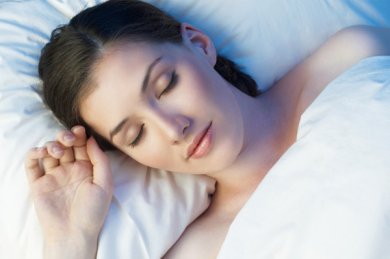
You can take the medication and you can eat the right foods, but many people believe that the best way to get over being sick is by sleeping and being well-rested. Now, recent research published in the journal SLEEP backs this commonly held belief; the best natural remedy for a speedy recovery from an illness is to get as much sleep as possible! The Study Dr. Julie Williams, research associate on the project, said, "It's an intuitive response to want to sleep when you get sick... but there is surprisingly little experimental evidence that supports the notion that more sleep helps us to recover. We used a fruitfly model to answer these questions." By modeling the recovery of sick fruit flies (either sleep-deprived or allowed to sleep), the researchers found the first evidence that sleeping can actually help induce a faster recovery by enhancing the response of the immune system. Dr. Williams explained, "increased sleep somehow helps to facilitate the immune response by increasing resistance to infection and survival after infection." Sleep and the Immune System Science has shown that poor sleep can lead to some disruptions in the immune system. For instance, it has been shown that poor sleep during pregnancy can result in disruptions in the immune system which have been linked to lower birth weights (among other complications). In fact, science has shown that lack of sleep can actually increase the risk of type 2 diabetes and even cardiovascular diseases all due to disrupting the immune system and causing an inflammatory response! The SLEEP study brings all of these studies together by indicating not only that sleep affects the immune system but that sleeping more when sick can speed up the recovery process. Wrap-Up It seems that research now does back the notion that sleep can be the best road to recovery, as Dr. Williams noted, "The take-home message from these papers is that when you get sick, you should sleep as much as you can -- we now have the data that supports this idea." Next time you are feeling under the weather, it might be a good idea to just stay home and get some quality, immune-system-enhancing sleep! Read More - naturalnews.com
Posted by Neil Bartlett DHyp M.A.E.P.H
at 00:01 MEST
Updated: Wednesday, 21 May 2014 01:41 MEST
Wednesday, 14 May 2014
Arrogance of ignoring need for sleep
Mood:
 d'oh
Topic: Sleep d'oh
Topic: Sleep
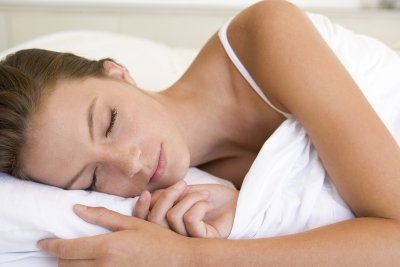
Society has become "supremely arrogant" in ignoring the importance of sleep, leading researchers have told the BBC's Day of the Body Clock. Scientists from Oxford, Cambridge, Harvard, Manchester and Surrey universities warn cutting sleep is leading to "serious health problems". They say people and governments need to take the problem seriously. Cancer, heart disease, type-2 diabetes, infections and obesity have all been linked to reduced sleep. The body clock drives huge changes in the human body. It alters alertness, mood, physical strength and even the risk of a heart attack in a daily rhythm. It stems from our evolutionary past when we were active in the day and resting at night. But scientists have warned that modern life and 24-hour society mean many people are now "living against" their body clocks with damaging consequences for health and wellbeing. Prof Russell Foster, at the University of Oxford, said people were getting between one and two hours less sleep a night than 60 years ago. He said: "We are the supremely arrogant species; we feel we can abandon four billion years of evolution and ignore the fact that we have evolved under a light-dark cycle. "What we do as a species, perhaps uniquely, is override the clock. And long-term acting against the clock can lead to serious health problems." He says this is an issue affecting the whole of society, not just shift workers. Read More - BBC
Posted by Neil Bartlett DHyp M.A.E.P.H
at 00:01 MEST
Updated: Wednesday, 14 May 2014 01:22 MEST
Thursday, 30 January 2014
Melatonin Linked to Weight Loss, Heart Disease Prevention
Mood:
 lazy
Topic: Sleep lazy
Topic: Sleep
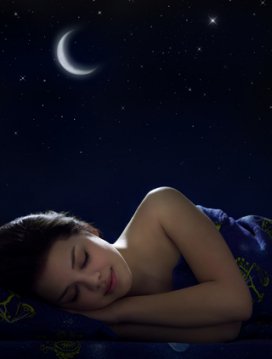
According to a study conducted at the University of Granada, melatonin can be quite helpful in controlling weight and increasing “good” cholesterol while decreasing “bad” cholesterol.
Obese Rats and Melatonin After analyzing the effects melatonin had on obese, diabetic rats, the researchers found that melatonin was able to help prevent “heart diseases associated to obesity and dyslipidemia”. Without a change in diet, rats who were given melatonin had a reduction in body weight, decreased blood pressure and an improved lipid profile. With these findings, they are confident that melatonin may help control obesity and improve blood lipid rations in humans while reducing the overall risk of heart disease. Melatonin Production Produced in the pineal gland within the brain and responsible for the sleep and wake cycles in the body, melatonin is known as the sleep hormone. This hormone is necessary to promote deep sleep, which our body needs for repair and maintenance. The production of melatonin is controlled is controlled by our bodies, naturally rising in the evening, remaining high most of the night, and then dropping by morning. Many factors come into play for the rate and amount of melatonin production; the amount of light, age, and even seasons can make a difference in how much melatonin is produced. During winter, for example, your body may produce melatonin later or earlier during the day. In addition to the lack of vitamin D, this alteration in melatonin production is thought to bring about the “winter blues.” In addition, melatonin production decreases with age. Read more: naturalsociety.com
Posted by Neil Bartlett DHyp M.A.E.P.H
at 00:01 CET
Updated: Thursday, 30 January 2014 02:08 CET
Sunday, 19 January 2014
How to overcome insomnia without prescription drugs
Mood:
 happy
Topic: Sleep happy
Topic: Sleep
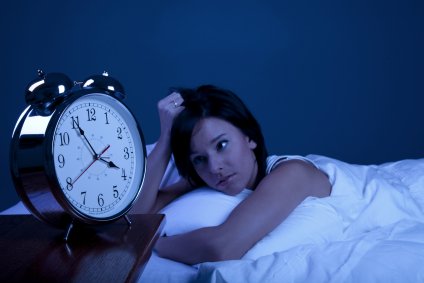
Are the worries of life keeping you up at night? Do you have trouble unwinding at the end of the day, and end up staring at the television or ceiling for hours trying to fall asleep? If getting normal rest is troublesome for you, there is hope apart from having to pop a sleeping pill every night just to get some shut-eye. Here are some helpful tips for overcoming insomnia without the use of prescription drugs: 1) Avoid processed foods You are probably starting to notice a pattern with many of our papers on conquering illness -- changing your diet is the key to vibrant health. So much of the food people eat today contains high amounts of refined sugar, processed flours, chemical flavor enhancers, food colorings, and shelf-stable oils and preservatives that the average person simply is not getting the nutrients he or she needs to achieve systemic equilibrium. Refined sugar and other simple carbohydrates, for instance, are very quickly absorbed into the bloodstream where they tend to overstimulate the body and interfere with normal sleeping patterns. According to Dr. Michael Murray, N.D., artificial food colorings may also be to blame, as these chemical compounds trigger a stimulant response that can put your body into "fight or flight" mode, where adrenaline, also known as cortisol, and other hormones are released in excess, signaling to your body that it is time to be awake and alert. Cutting processed foods out of your diet, particularly from the time between when the sun goes down and when you go to bed, can help promote restfulness and calm in preparation for sleep (http://doctormurray.com). 2) Fortify your diet with whole fruits and vegetables, 'superfoods'. Since cutting out certain foods from your diet leaves an even greater nutritional void, it is important to replace these foods with more appropriate ones. In the case of frequent insomnia, organically-grown whole fruits and vegetables are an important addition to your diet as most varieties promote alkalinity and inhibit the feeding of candida and other harmful yeasts that can actually be a cause of insomnia-producing anxiety for some people. Many people have reported success overcoming insomnia by switching to a completely alkaline-forming diet, at least for a few days (http://www.naturalnews.com). Along with this, consuming high-density "green" supplements and powders like BOKU Superfood and Amazing Grass can help level out your nervous system and feed your body concentrated doses of not only "superfood" fruits and vegetables, but also a diverse array of probiotics, microalgae, and other foods of which you are likely not eating enough, or perhaps not eating at all. Juicing fresh, organic fruits and vegetables in the morning and mixing in some green superfood powder is a great way to start your day on the right foot so you will feel ready to sleep once nighttime arrives (http://www.naturalnews.com/022753_food_superfood_taste.html). 3) Turn off all your electronic gadgets a few hours before going to bed. In order for your body to know that it is the appropriate time to begin producing sleep hormones like melatonin, light sources must be kept off or at least very dimly lit in the few hours prior to bedtime. The constant glow that comes from looking at your television, computer, tablet, and mobile phone screens basically signals to your brain that it is still daytime, which inhibits the normal production of sleep hormones that calm your brain and induce restfulness. "We all suffer from light pollution -- we have lights on 24/7, which keeps our brains chronically aroused," says Rubin Naiman, a clinical assistant professor of medicine at the University of Arizona's Program in Integrative Medicine, and sleep director at the Miraval Resort in Tucson, Arizona, about how excess light can create insomnia. "Most people don't recognize how essential darkness is for a sound night's sleep" (http://www.msnbc.msn.com). 4) Exercise daily to exert energy. Another common cause of insomnia is lack of physical exercise, which creates natural sleepiness in your body after a long day. Many people sit in fluorescent-lit cubicles for most of the day, and come home and spend more sedentary time on the couch watching television. By engaging in at least 30 minutes of moderate aerobic activity every day, even if this means just going for a quick walk around the neighborhood, or lifting weights and exerting your muscles, especially if you are a man, you will naturally fatigue your body to the point that sleep will come much more easily at the end of the day. "The body must exert energy to get physically tired," says James Maas, a professor of psychology at Cornell University, and author of the book Power Sleep. And this energy exertion, numerous studies have shown, actually works better than benzodiazepines and other types of sleeping pills at inducing sleep and improving sleep quality. Learn more: naturalnews.com
Posted by Neil Bartlett DHyp M.A.E.P.H
at 00:01 CET
Updated: Sunday, 19 January 2014 01:19 CET
Friday, 1 November 2013
Sleep Cleans the Brain of Toxins
Mood:
 chatty
Topic: Sleep chatty
Topic: Sleep
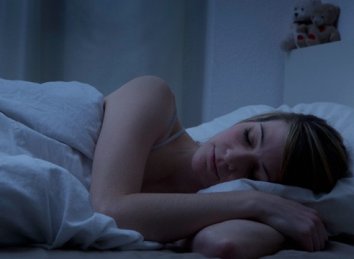
The brain uses sleep to wash away the waste toxins built up during a hard day's thinking, researchers have shown. The US team believe the "waste removal system" is one of the fundamental reasons for sleep. Their study, in the journal Science, showed brain cells shrink during sleep to open up the gaps between neurons and allow fluid to wash the brain clean. They also suggest that failing to clear away some toxic proteins may play a role in brain disorders. One big question for sleep researchers is why do animals sleep at all when it leaves them vulnerable to predators? It has been shown to have a big role in the fixing of memories in the brain and learning, but a team at the University of Rochester Medical Centre believe that "housework" may be one of the primary reasons for sleep. "The brain only has limited energy at its disposal and it appears that it must choose between two different functional states - awake and aware or asleep and cleaning up," said researcher Dr Maiken Nedergaard. "You can think of it like having a house party. You can either entertain the guests or clean up the house, but you can't really do both at the same time." Plumbing Their findings build on last year's discovery of the brain's own network of plumbing pipes - known as the glymphatic system - which carry waste material out of the brain. Scientists, who imaged the brains of mice, showed that the glymphatic system became 10-times more active when the mice were asleep. Cells in the brain, probably the glial cells which keep nerve cells alive, shrink during sleep. This increases the size of the interstitial space, the gaps between brain tissue, allowing more fluid to be pumped in and wash the toxins away. Dr Nedergaard said this was a "vital" function for staying alive, but did not appear to be possible while the mind was awake. Read More - BBC
Posted by Neil Bartlett DHyp M.A.E.P.H
at 00:01 MEST
Updated: Friday, 1 November 2013 02:09 MEST
Wednesday, 1 May 2013
Are we confusing ADHD with sleep deprivation?
Mood:
 chatty
Topic: Sleep chatty
Topic: Sleep

A leading U.S doctor believes that many cases of diagnosed ADHD are in fact sleeping disorders in disguise. Vatsal Thakkar, a clinical assistant professor of psychiatry at the New York University School of Medicine, says he is treating an increasing number of people with ADHD symptoms but who actually have suffer with poor quality sleep. For some people - especially children - sleep deprivation does not necessarily cause lethargy; instead they become hyperactive, forgetful and unfocused, he said. It was a 31-year-old patient who alerted him to the link when he came for treatment because he was exhibiting the symptoms of Attention Deficit Hyperactivity Disorder (ADHD). He was suffering with all the symptoms - including procrastination and forgetfulness - but his problems had only started two years earlier. In order to diagnose a person with ADHD, they must have experienced the symptoms since childhood, he says. Read more: dailymail.co.uk
Posted by Neil Bartlett DHyp M.A.E.P.H
at 00:01 MEST
Updated: Wednesday, 1 May 2013 01:01 MEST
Newer | Latest | Older
|
| « |
April 2024 |
» |
 |
| S |
M |
T |
W |
T |
F |
S |
|
1 |
2 |
3 |
4 |
5 |
6 |
| 7 |
8 |
9 |
10 |
11 |
12 |
13 |
| 14 |
15 |
16 |
17 |
18 |
19 |
20 |
| 21 |
22 |
23 |
24 |
25 |
26 |
27 |
| 28 |
29 |
30 |
|











